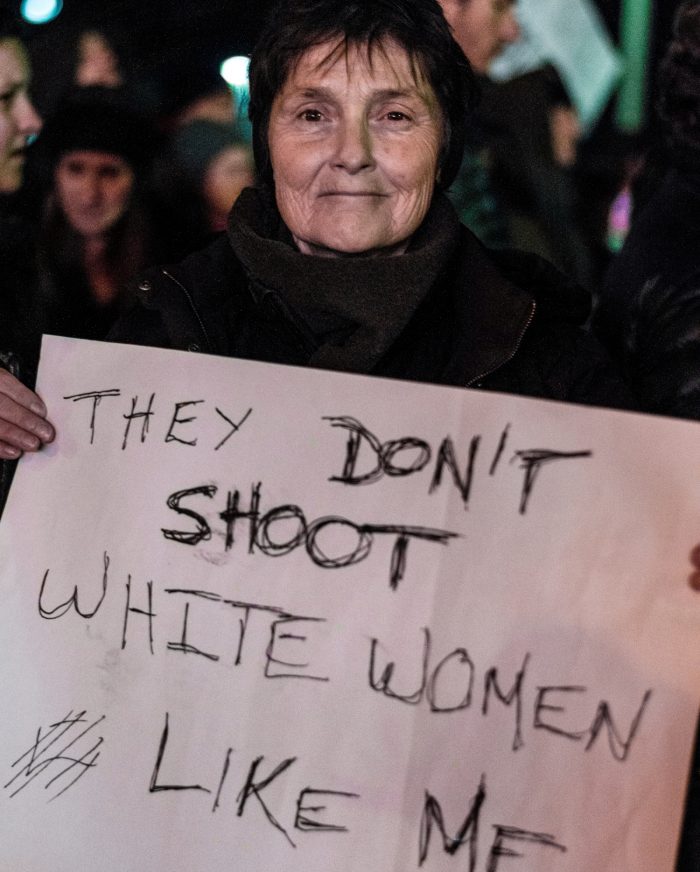Anti-racism demands impact beyond encouragement and awareness.
Going from oblivion or mild awareness to membership in an anti-racist book club may seem like a tremendous journey, but it pales significantly to the struggles of Black and Indigenous individuals for some 400-plus years.
Anti-racist work is not for the fainthearted. If you are offended by these words, you are still in the “waking up” phase of anti-racist work and not yet ready for impact. Impact work requires a strong stomach. The kind that BIPOC individuals have been forced to acquire to survive in a world that does not tolerate their kind on account of their color.
If these words are received with offense, it is likely due to lingering beliefs regarding entitlement, superiority, and privilege that are often embedded in allyship. To be fair, these beliefs are also embedded in a wider culture that lives alongside, breeds, and tolerates structural racism, and which also affects BIPOC individuals in their thinking and behaviors. You cannot draw a breath and not absorb it into your system.
One brick in one wall that holds up the building where racism resides can be dismantled with a simple grammar lesson:
Ally is a noun, but it is also a verb.
As a noun, it is about status and stagnation. It is something bestowed. It has an end point. When coupled with a deep-seated need for validation, (e.g. that one is not racist), “ally” as a noun generates a tendency to slow down and stop once the status has been acquired.
In just two to three generations, we have witnessed several wide-scale protests when the rage and burden of racism has become so intolerable that those deprived of full participation in civic and social life brave baring their pain to demand change.
The message is not new. It was reiterated in the 1964 civil rights movement. It reemerged during the Rodney King protests in 1991. (These are by no means the only “surges”—just the ones that people usually mention.) For instance, in 1913, the day before Woodrow Wilson’s presidential inauguration, many African American women joined the thousands who gathered in Washington, D.C. to demand the right to vote.
Black individuals did not stop talking in between these events. The suffering did not stop. People merely tuned out.
Modern communication has disseminated the message to extremes that were unimaginable in 1964. You only had to Google to know that racism continued. In 1998, James Byrd Jr., a 49-year-old father of three, was kidnapped, beaten, and then dragged for nearly three miles after being chained to the back of a pickup truck. He was apparently alive for at least two of those miles.
This is why BIPOC individuals insist that non-BIPOC folk do their own work. BIPOC individuals are exhausted saying the same thing over and over that exists in plain sight.
And what is the “work?”
The work is not reading or learning about racism. That’s history or current events. The “work” is to dismantle racism. In anti-racist work, “ally” implies ongoing endeavor and impactful action in dismantling systemic racism. This is more suited to “ally” used as a verb, which conveys “doing.” Yes, reading is also action, but it’s not terribly impactful in dismantling systemic racism.
Here are some pointers to practice allyship as a verb:
>> Don’t assume that having BIPOC associations means that you are doing the work. Many BIPOC individuals have become adept at code-switching as a protective mechanism to deal with white denial/fragility/defenses. You may not know as much about racism as you think you do, even though you have Black friends.
>> Resist reframing the narrative regarding racism so that it doesn’t seem as bad as it actually is. It’s not just bad, it’s worse.
>> Assume that you are entrenched in white norms and have blind spots.
>> Practice humility so that you can truly learn and advance toward impact.
>> Don’t do anti-racist work to save Black people. Do it so that your children will believe you when you say that all human beings deserve the right to life, liberty, freedom from fear of torture or death, to work and pursue an education, and to live with dignity and respect. Do it for yourself.
>> Seek out BIPOC anti-racist activists and practitioners who are experienced in anti-racism work. Don’t assume that they ought to just give freely their energy, time, and hard-earned and expensive education and expertise. You are asking for their energy, time, and expertise. Just as you would want to be paid for your effort and time, so do they.
Anti-racist work is much more than rhetoric and reactivity. It is part of longstanding reaction to adverse conditions hailing back to slavery.
Hopefully, this article provides some context to the eye-rolling and exasperation from BIPOC individuals and provides more than inspiration to propel anti-racism beyond #trending.











Read 2 comments and reply